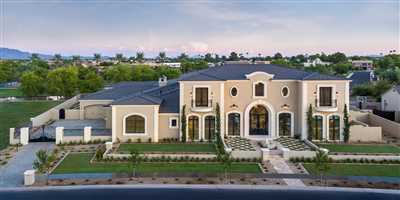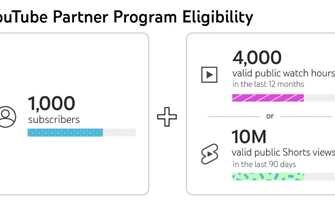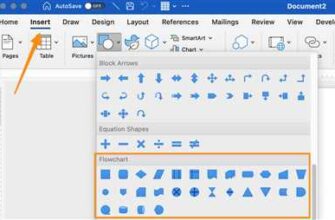
Building your own custom house is a dream come true for many homeowners. Not only does it allow you to have a home that is tailor-made to your specific needs and preferences, but it also gives you the opportunity to create a space that truly reflects your personality and style. However, the process of building a custom house can be quite complex, and there are many important decisions that need to be made along the way. In this article, we’ll provide you with some valuable tips and insights to help you navigate through the process and ensure that your custom house is everything you’ve ever dreamed of.
One of the first decisions you’ll need to make when building a custom house is where to build it. Are you going to purchase a piece of land specifically for your new home, or do you already have a property that you want to build on? If you’re looking to purchase land, there are a few things you should consider. You’ll need to look for a site that not only fits your budget, but also meets all applicable zoning and building codes. Additionally, you’ll want to choose a location that is convenient to amenities like schools, shopping centers, and medical facilities. Take the time to research different areas and visit potential sites to get a better idea of what’s available and which location would be the best fit for your needs.
Once you’ve secured a site for your custom house, the next step is to choose a builder. This is an incredibly important decision, as the builder you choose will have a significant impact on the overall quality and outcome of your project. Take the time to do your homework and research different builders in your area. Look at their past projects, read reviews, and talk to previous clients if possible. Make sure you choose a builder who has experience in building custom homes and has a good reputation for delivering high-quality work.
While the design and construction of your custom house are of utmost importance, don’t forget about the financing aspect of the project. Before you sign on the dotted line with a builder, it’s important to have a clear understanding of your budget and how much financing you’ll need. Get in touch with different lenders and get pre-approved for a loan. This will give you a better idea of how much you can afford to spend on your custom house and will also give you a better negotiating position with potential builders. Remember, it’s not just the cost of the house itself that you’ll need to budget for – there are also additional costs for land, permits, design fees, and other associated expenses.
Tips for Building a Custom Home in Florida
Building a custom home in Florida can be an exciting and rewarding process. However, it can also be a complex and time-consuming endeavor. Here are some important tips to keep in mind when embarking on your custom home project in the Sunshine State.
1. Find the Right Builder: Choosing the right builder is one of the most important decisions you will make. Look for builders who have experience in constructing custom homes in Florida, as they will be familiar with the specific challenges and regulations applicable to the state.
2. Secure Financing: Before you can start your project, you’ll need to secure financing. Create a budget and determine how much you can afford to spend on your new home. Shop around for the best financing options and make sure you understand the terms and conditions of the loan.
3. Select the Perfect Location: The location of your custom home is crucial. Consider factors such as access to schools, amenities, and your workplace. Decide if you want to be close to the city or enjoy a more secluded setting. Also, research zoning laws and any restrictions that might impact your design choices.
4. Choose Your Design: Once you have your budget and location set, it’s time to think about the design of your custom home. Work with a skilled architect or designer to create the perfect floor plan and aesthetic for your dream home. Consider both the functionality and beauty of your design.
5. Don’t Forget the Details: When building a custom home, it’s the small details that can make a big difference. Think about features like stone countertops, custom cabinetry, and high-end finishes. Remember, the decisions you make now will greatly impact the look and feel of your home once it’s built.
6. Stay Involved: Throughout the building process, stay involved and informed. Regularly communicate with your builder and ask questions about the progress of the construction. Visit the site as much as possible to ensure that your vision is being implemented correctly.
7. Sign on the Dotted Line: Before any work begins, make sure to sign a detailed and binding contract with your builder. The contract should outline all the agreed-upon specifications, pricing, and timelines. This will protect both you and the builder throughout the project.
8. Prepare for Unexpected Challenges: Building a custom home can come with unexpected challenges, such as delays due to weather or design changes. Be prepared to be flexible and patient while the construction is ongoing. Remember, your dream home is worth the wait!
9. Enjoy the Process: While building a custom home can be stressful at times, try to enjoy the process. Take the time to celebrate each milestone and appreciate the progress you have made. Soon enough, you’ll have a beautiful and unique home that reflects your style and preferences.
By following these tips, you can navigate the process of building a custom home in Florida with confidence and achieve the home of your dreams.
Step One – Financing, Choosing, and Purchasing Land

Before you can start building your custom house, you’ll need to secure financing and find the perfect piece of land to build on. This is an important first step in the home building process, as it sets the foundation for all the decisions you’ll make later on.
First, you’ll need to decide how much you can afford to spend on your custom home. This will help you set a budget and determine how much you’re willing to spend on the land itself. Remember, the cost of the land is just one part of the overall price of building your home, so make sure to take into account other things like design, materials, and labor.
Once you have a budget in mind, it’s time to start looking for land. There are many factors to consider when choosing a site for your custom home. Some important questions to ask yourself include:
- Where would you like your home to be located?
- What type of property are you looking for?
- What access and amenities are important to you?
- Are there any applicable building or zoning restrictions?
It’s also important to work with a builder who is familiar with the area where you plan to build. They can help guide you through the process and provide valuable insight into the local market. Additionally, they may have access to land listings that you might not find on your own.
Once you’ve found a piece of land that you like, it’s time to make an offer and negotiate the purchase. This is where financing comes into play again. You’ll need to secure a loan to purchase the land, unless you’re able to pay for it in cash. Make sure to shop around and compare rates from different lenders to get the best deal.
Before you sign on the dotted line, it’s important to do your due diligence. Have a survey done to determine the boundaries of the property and conduct any necessary inspections. You don’t want to discover any hidden issues once you’ve already committed to the purchase.
Keep in mind that the process of purchasing land can take some time, so be patient. It’s not uncommon for it to take several months from the time you decide to purchase until the deal is finalized.
While you’re waiting for the purchase to go through, you can start working with your builder to design your custom home. It’s important to involve them early on in the process, as they can provide valuable insight and help you make informed decisions about the design and cost of your home.
Once the land is officially yours, you can begin the exciting process of building your custom house. Remember, this is a once-in-a-lifetime project, so make sure to enjoy the journey and take pride in the decisions you’ve made along the way.
Get to Know Your Project Site
When building a custom home, one of the most important steps is to get to know your project site. Whether you are building in Florida or any other location, understanding the characteristics of the land and its surroundings is crucial for a successful construction process.
First and foremost, you’ll want to look at the access to the site. Consider how easy it is to reach the property and whether there are any restrictions or limitations. This will affect not only the cost of financing and building your custom home but also the overall timeline of the project.
Take the time to walk around the site and get a feel for the area. Look for any potential issues like a lack of utilities or difficult terrain that may require extra work or expenses. It’s also important to check if there are any environmental factors to consider, such as flood zones or protected habitats.
While each builder may have their own process, it’s important to discuss your project with them at an early stage. They can provide valuable insights and help you make decisions regarding the design and construction of your custom home.
If you’ve already purchased the land, remember that it’s only the first step. You’ll need to ensure that the property is suitable for your custom home and meets all the applicable regulations and requirements. This may involve obtaining permits and approvals, so be prepared for additional time and costs.
Choosing the right builder is also crucial. Look for someone with experience in building custom homes and ask for references. Don’t be afraid to ask questions and clarify any doubts you may have. A good builder will guide you through the entire process and ensure that your vision becomes a reality.
It’s worth noting that the price of purchasing the land and building your custom home is not the only cost to consider. There are additional expenses like landscaping, furnishing, and moving that should be factored into your budget.
Once you’ve taken the time to get to know your project site and have all the necessary information, you can decide if building a custom home is the right choice for you. It’s an exciting process that allows you to create a space that is uniquely yours, but it requires careful planning and consideration.
Get started on your custom home project with these tips, and remember that while the road may be dotted with challenges, the end result will be worth it.
Step 4: Sign on the dotted line
After going through the process of choosing a custom home builder and designing your dream home, it’s time to sign the contract and officially start the project. This step is crucial because it marks the point where you commit to the project and make important decisions about your future home.
Before signing the contract, it’s important to carefully review all the details and ensure that everything is in line with your expectations and desires. Make sure you fully understand the terms and conditions, including the cost, the timeline, and any applicable warranties. If there is anything you don’t understand or would like to change, don’t hesitate to ask your builder for clarification or modifications.
This is also the stage where you need to consider financing options. If you haven’t secured financing for your custom home, now is the time to work closely with your builder and a lender to ensure that you have the necessary funds in place. Building a custom home can be a significant financial investment, so it’s important to have a clear understanding of the budget and financing options available to you.
Once you are satisfied with the contract and financing arrangements, it’s time to sign on the dotted line. By signing the contract, you are giving your builder permission to begin the construction process. Keep in mind that this step is not only about signing a piece of paper; it’s also about setting the foundation for a successful construction process.
When signing the contract, it’s important to remember that building a custom home is a complex process that requires time and attention to detail. There may be unexpected challenges along the way, so it’s important to be patient and flexible. It’s also important to maintain open communication with your builder throughout the construction process, so you can address any questions or concerns that may arise.
Signing the contract may feel like a major milestone, but it’s not the end of the decision-making process. In fact, it’s only the beginning. As you progress with the construction, you may encounter new choices and decisions that need to be made. From selecting finishes to making design adjustments, there will be plenty of opportunities to make your dream home truly yours.
While signing the contract may seem like a final commitment, remember that you have the right to make changes and adjustments along the way. However, keep in mind that significant changes may incur additional costs and delays, so it’s important to carefully consider any modifications before moving forward.
In conclusion, signing the contract for your custom home is a critical step in the building process. It not only signifies your commitment to the project but also sets the stage for the construction phase to begin. Take the time to review all the details, ask the necessary questions, and ensure that you are fully comfortable with the terms and conditions before signing on the dotted line.
Remember No Budget is Set In Stone Until You work with a Builder

When it comes to building a custom house, homeowners need to remember that no budget is set in stone until they start working with a builder. There are many things to consider when creating a budget for your project, and it’s important to be flexible and open to adjustments along the way.
Before you even start looking for a builder, take the time to evaluate your finances and determine how much you can realistically afford to spend on your new home. Consider all the costs that will be involved, including the price of the land, financing fees, and any additional expenses that might come up during the building process.
Once you have a general idea of how much you’re willing to spend, it’s important to do your homework and research builders in your area. Look at their previous work, read reviews, and ask for recommendations from friends or family who have had experiences with them. It’s also important to interview several builders and ask them specific questions about their process, timeline, and pricing.
Remember that the cost of building a custom house can vary greatly depending on factors like the location of your property, the size and design of your home, and any additional features or upgrades you choose. It’s essential to have a realistic understanding of these aspects and not to get too attached to a specific budget until you’ve consulted with a builder.
Working with a builder will allow you to get a more accurate estimate of the cost of your project. They will be able to provide you with a detailed breakdown of the costs involved, including materials, labor, permits, and any additional fees or taxes. They will also be able to advise you on ways to save money or make adjustments to stay within your budget.
One important tip for homeowners in Florida is to consider the cost of hurricane-resistant features in their budget. These features, like impact-resistant windows and reinforced roofs, are often required by building codes in hurricane-prone areas. Including these costs in your budget from the beginning will ensure that your home is built to withstand extreme weather conditions.
Remember that the process of building a custom house can be a long and complex one, and there may be unexpected costs or delays along the way. It’s important to have a contingency fund in place to allow for these unforeseen expenses. This will help to prevent any financial stress or strain during the building process and ensure that your project stays on track.
Ultimately, the decision to build a custom house is an exciting one, but it’s important to make informed decisions along the way. Remember that no budget is set in stone until you’ve worked with a builder and have a clear understanding of the costs involved. By doing your research, asking the right questions, and being open to adjustments, you’ll be able to create a budget that is realistic and achievable for your custom house project.









